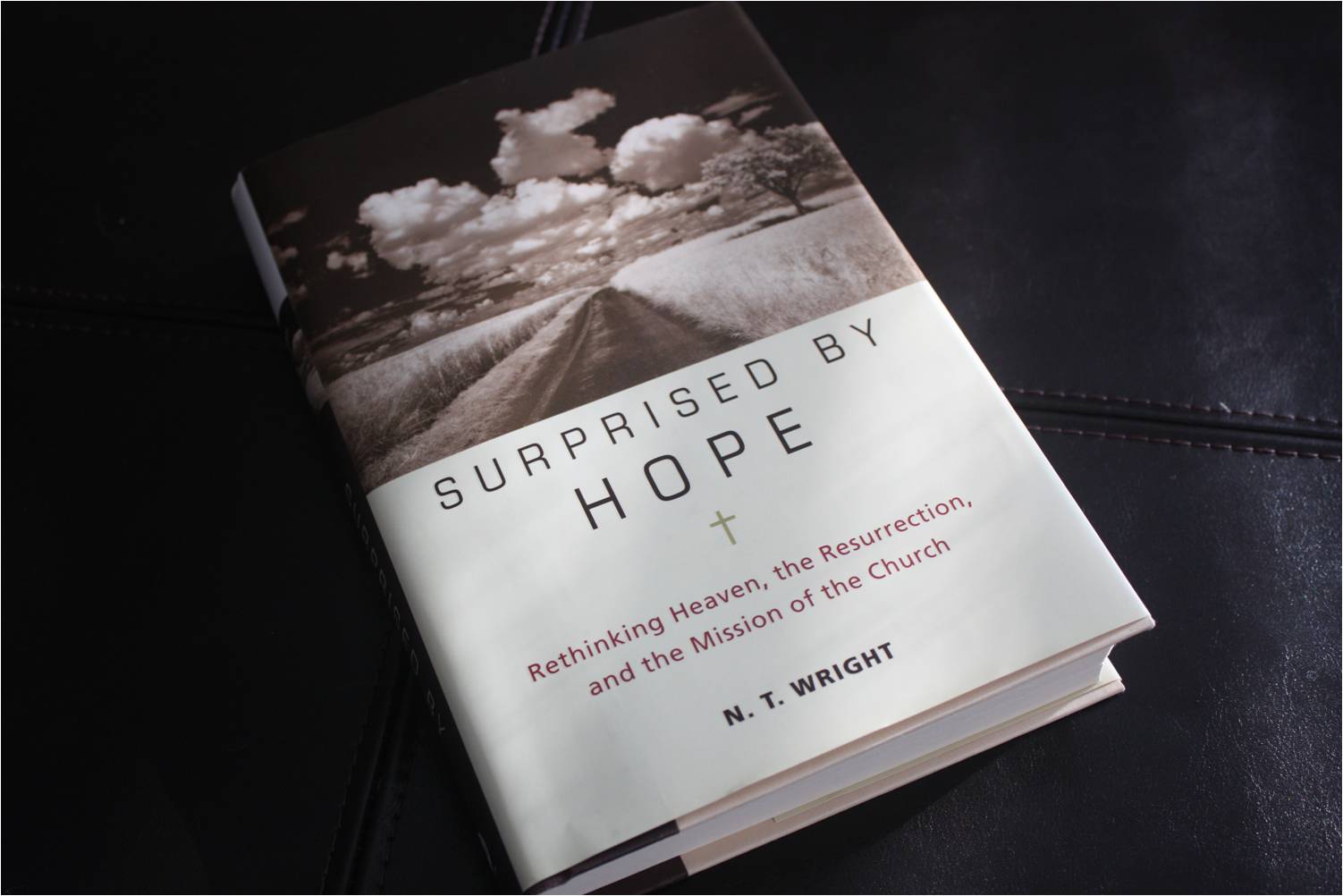Surprised by Hope: Rethinking Heaven, the Resurrection, and the Mission of the Church by N.T Wright (Book Review)

Leave a reply
Description
Surprised by Hope: Rethinking Heaven, the Resurrection, and the Mission of the Church by Wright, N. T., HarperCollins, 2009. Pp.1+338.
In the book, Surprised by Hope: Rethinking Heaven, the Resurrection, and the Mission of the Church, N.T. Wright focuses on the ultimate Christian hope, and the hope that Christians have for change, transformation, rescue, and new possibilities in the new world from Part I. The preface in the beginning of the book, states that the modern world as such has failed to derive understanding regarding death, resurrection and eternal life from the early Christians. The author defines the purpose of the book as unearthing the belief system of the early Christians because they amount to the best-grounded hope that the modern world seeks after. Part I of the book discusses several issues that set the scene for his arguments.
Regarding confusion about hope in modern culture, Wright contends that the beliefs about the afterlife among many people today are a mix of Buddhist and Christian ideas. Wright further states that the many different interpretations regarding eternal hope in the church today is unexpected because the early Church were of the same mind in their beliefs about hope. He adds that the early Christians believed in the restoration of the creation that was destroyed by men, in the new heaven and new earth that was promised by God the father. Wright posits that the Church cannot offer hope to the confused world until it recovers its hope, which turned the world upside down (pp. 29-33).Wright then goes on to examine the hope of the early Christians from a historical perspective. In the chapter, he explains how one of the central themes of Christianity, the resurrection does not originate from paganism. He reviews many different ancient texts in order to cement his point. The ancient people refer to resurrection as turning a new leaf in one’s life which is far from what the early Christians hoped for – life after death. Although the beliefs about death and the afterlife seem extremely conservative, Wright argues that the hope of the early church is surprising and new in many ways (pg. 43). Further, Wright delves the peculiar story of Easter. According to the author, the empty tomb and the reappearance of Jesus after resurrection provide compelling evidence for the early Church’s beliefs in the Easter. He refers to four features the gospels share: the absence of allusions and quotes from the Old Testament, the presence of a woman as the key witness, the mysterious description of Jesus’ body, and the failure to mention the future Christian hope in the resurrection accounts (pg.54-59). “Both the meetings and the tomb are necessary if we were to explain the rise of the belief and the writing of the stories as we have them. Neither by itself was sufficient; put them together, and they provide a complete and coherent explanation for the rise of the early Christian belief” (pg. 59). Part II of the book dives into what God has purposed for a Christian. According to the author, the Bible never states that a born again soul goes to heaven naked. Instead he says that the bible talks about a new heaven and earth coming down as the old heaven and earth pass away. “So far from sitting on clouds playing harps, as people often imagine, the redeemed people of God in the new world will be the agents of his love out in new ways to accomplish new creative tasks, to celebrate and extend the glory of his love” (pg. 106). Further, Wright examines the ascension of Jesus and questions why Christians have not given the doctrine the attention that it requires. The author refutes the popular understanding of the rapture and Jesus’ second coming as the Left Behind books teach. This book suggests that God’s space and the worldly space interlock and will be joined in “a new way, open, and visible to each other”, which implies the two will be intermarried at Jesus’ second coming (pg. 116). On redemption, the author argues that Jesus’ final coming will mark the redemption of the world because the world will get his personal presence contrary to his current absence (pg. 123). In this regard, Jesus will come as a judge, which the Bible does not portray as a thing that people should celebrate (pg. 137). Wright claims that the early Christians and the Bible agree about the redemption of the earthly bodies in that God will give life to the mortal bodies, rather than the disembodied spirit in its non-physical form (pg. 149).

